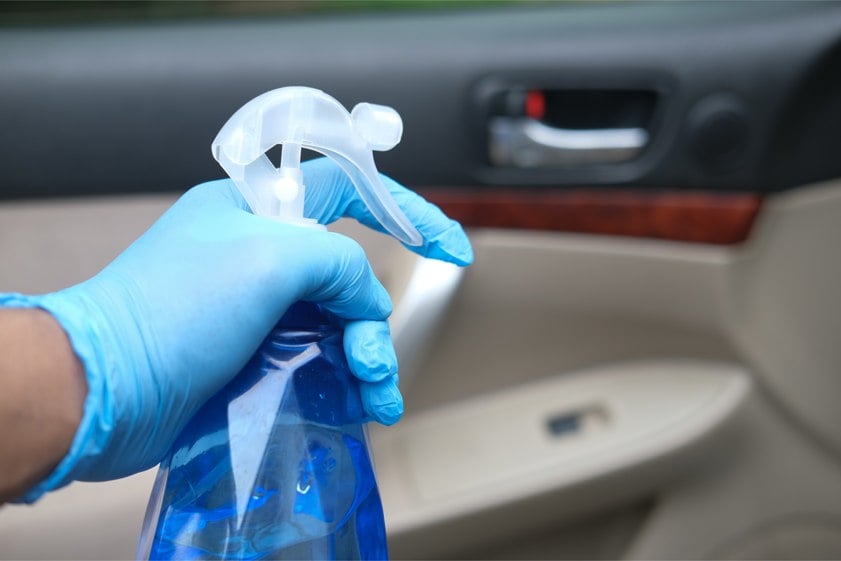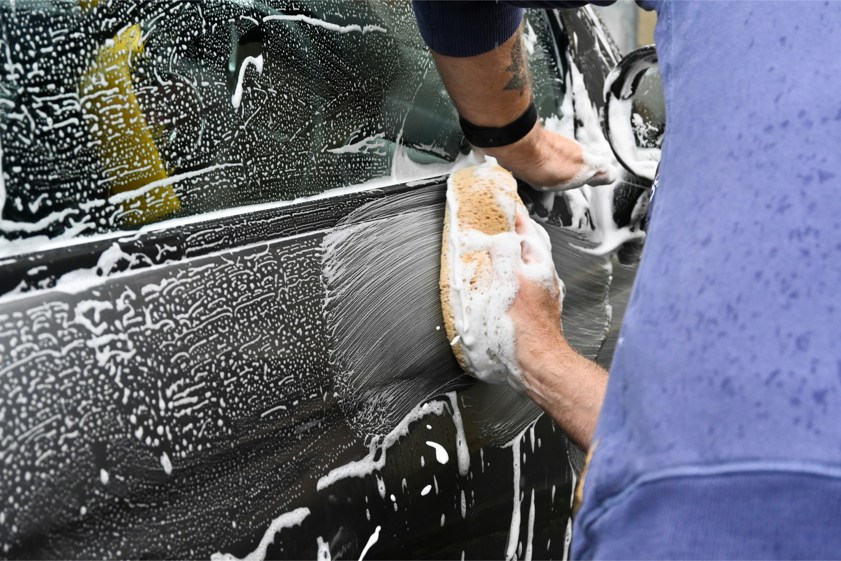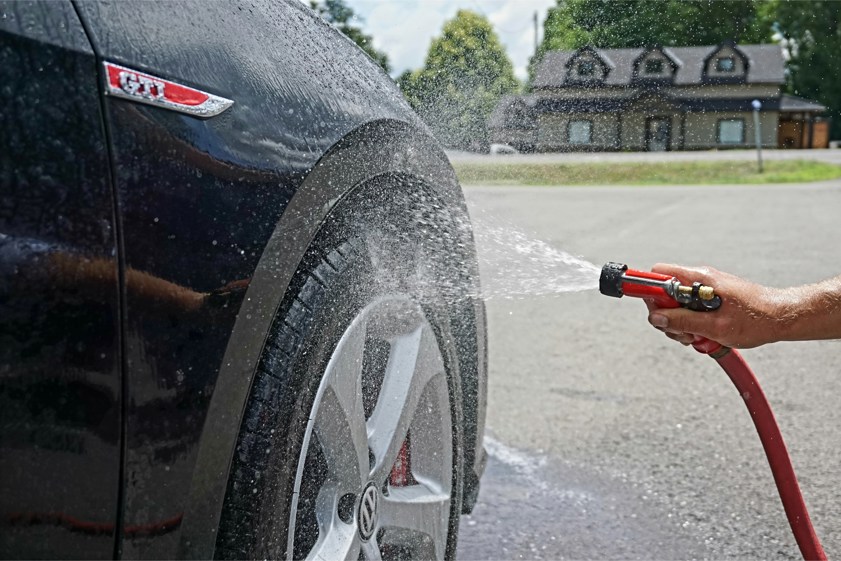
New Year resolutions have kicked off, and many may be looking to tackle all the mess that has accumulated in their car during 2023.
To help remove some of the stress and keep costs down, Nationwide Vehicle Contracts reveal their top tips on how to clean your vehicle at home and the mistakes to avoid.

Before applying your mitt, cloth or sponge, use a pressure washer or hose to dislodge the top layer of dust, dirt and grit. This will remove loose particles and will lower the risk of scratches.
Firstly, clean the tyres with a pressure washer to prevent dirt from spraying onto your clean paintwork. Apply the degreaser or cleaning solution and use a soft-bristled brush or sponge to clean.
When your wheels are clean, work from top to bottom on the paintwork where there is likely to be more dirt. This will avoid dirt being transferred to a section you have already cleaned.
Washing your vehicle in straight lines as opposed to circular motions, and rinsing as you go will improve the quality of your clean and will lower the chance of soap and swirl marks.
Use a microfibre cloth and avoid letting your vehicle air-dry as it will increase the chance of watermarks and smears.
Once clean, polish the main body of the car using car polish and a clean microfibre cloth. Be sure to polish all glass (inside and out) with a car glass cleaning solution using a clean microfibre cloth.
For ease, remove everything from your car. From the car mats and emergency kits to everything rattling around in your glove box and drink holders. Then start by vacuuming the carpets, seats, back shelf, boot, dashboard, down the sides and underneath the seats and air vents. After this, you can use car shampoo with clean water on the seats and carpet, the dashboard and any plastic including the seat belt locking mechanism. Then dry everything with a clean microfibre cloth.
Often forgotten about, it is a good idea to replace your pollen filter to improve its effectiveness. Also, check all your light bulbs work and replace them where necessary and top up washer fluid, anti-freeze, oil and power steering lubricant.
“Cleaning your vehicle may seem like a simple task, however, if you use the incorrect tools and techniques you can reduce the effectiveness of your cleaning process. In some extreme cases, it could also cause you to damage your vehicle's paintwork”


The strong chemicals in detergents are not made with your vehicle in mind and are made to break down grease and stains. Using this frequently will wear away the wax and protective coat on your vehicle. Stick to using car-specific shampoos and don’t forget the headlamps, wing mirrors, windows and windscreens.
The rough surface of kitchen sponges can easily leave your vehicle with lots of scratches. Instead, we recommend a microfibre mitt or sponge.
Higher temperatures and direct sunlight can leave your vehicle’s surface with pesky watermarks. The heat will also speed up the drying process when you apply soap, making it harder to rinse off.
If you can't avoid washing your vehicle in direct sunlight, you will have to adapt your technique. Make sure to work quickly, and only do one section of your vehicle at a time. That said, never wax or polish your car in direct sunlight, always wait for a cooler part of the day or place your vehicle in the shade.
Due to the high pH of bird poop, it can stain and cause damage to your vehicle's paintwork. Therefore, it is important to remove any droppings as soon as possible - even if it doesn’t fit in with your car washing schedule.
Do not attempt to scrape off dried droppings as this could cause even more damage. Instead, use your regular car shampoo and hot water to soften the dirt so it can be easily wiped away.
An automatic car wash may seem like a convenient option, however, it can actually cause damage to your vehicle's paintwork. This is especially true for older machines which are often fitted with stiff nylon brushes.
Stiff brushes, alongside built-up dirt and debris from other vehicles, can cause scratches and ‘swirl marks’ on your vehicle. Over time this can make your vehicle's paintwork fade and appear dull. To amend this professionally can then leave you with a hefty bill, so we recommend washing your vehicle by hand!
Keith Hawes, Director of Nationwide Vehicle Contracts, comments:
“As we kick off 2024, there’s never been a better time to start your deep cleaning regime. However, with the cost of living continuing to remain high in the UK, it is no surprise that drivers are looking for ways to keep their costs down."
“According to NimbleFins, getting your vehicle professionally cleaned can cost drivers anywhere from £4.50 to £250 depending on where you live and the level of service required. Therefore, taking the cleaning and upkeep of your vehicle into your own hands can be an easy way to reduce costs."
Originally posted: 23rd January 2024

